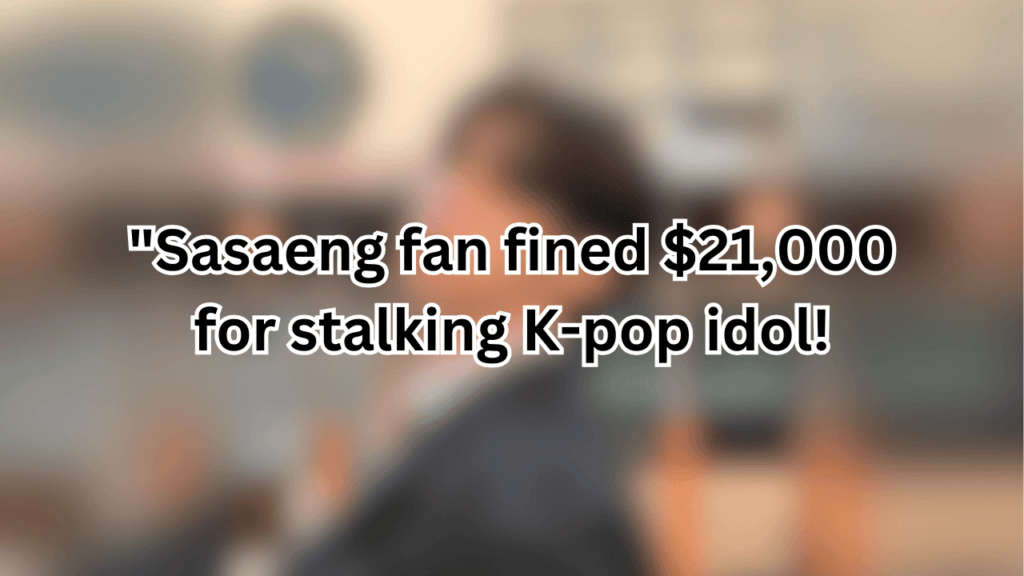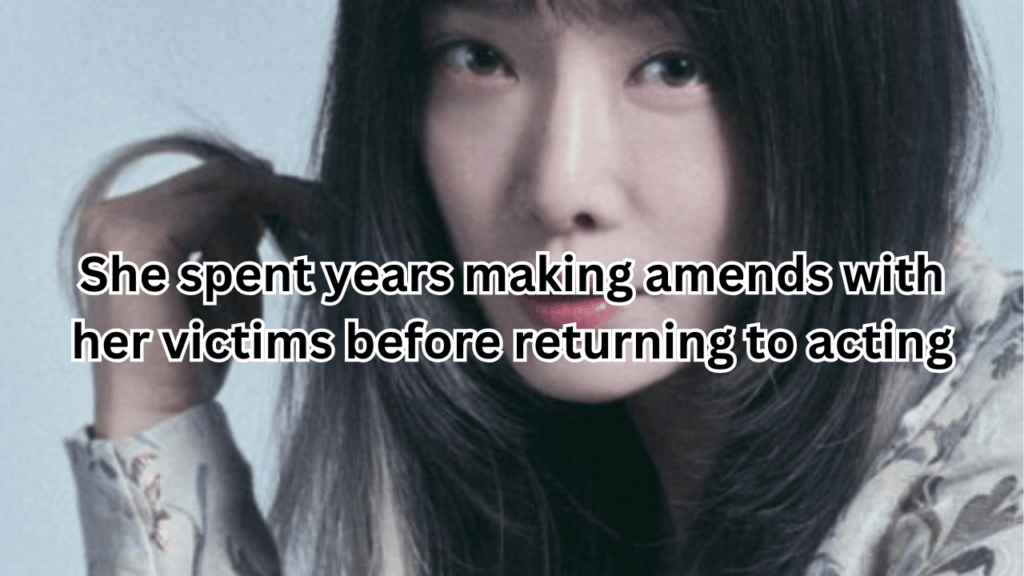K-pop stalking legal penalties have become a hot topic in South Korea’s entertainment industry. With the rise of obsessive fans, also known as “sasaeng,” the need for stricter laws has never been more pressing. Let’s dive into the world of K-pop fan culture and explore the legal consequences of crossing the line from devoted fan to dangerous stalker.
The Anti-Stalking Act: A Game-Changer
In October 2021, South Korea took a significant step in addressing the issue of stalking by implementing the Anti-Stalking Act. This law allows for legal action against behaviors that violate privacy, giving K-pop idols and other celebrities a much-needed layer of protection. But just how severe are these K-pop stalking legal penalties?
Under the Anti-Stalking Act, stalking crimes can result in some pretty hefty punishments. Offenders can face up to three years in prison or a fine of up to 30 million KRW (about $21,000). That’s no small change! And if things get really serious, like when a dangerous object or weapon is involved, the penalties get even tougher. In such cases, stalkers could end up behind bars for up to five years or be slapped with a fine of up to 50 million KRW (around $36,000).
What Counts as Stalking?
You might be wondering, “What exactly counts as stalking?” Well, the Anti-Stalking Act has laid out some clear guidelines. Here are some actions that can get sasaeng fans in big trouble:
Following someone around or blocking their path
Hanging out near their home, workplace, or school
Sending unwanted letters, phone calls, faxes, or digital messages
Sneaking into private spaces (which can land you in jail for up to three years or cost you a fine of up to 5 million KRW)
Spreading rumors or insults (this can result in up to a year in prison or a fine of up to 20 million KRW)
See Also: NJZ Hyein’s Bangs Hairstyle Transforms Her Look During Livestream
Real-Life Cases: When Fans Cross the Line
Now, let’s look at some real-life examples of K-pop stalking legal penalties in action. These cases show just how serious the consequences can be for obsessive fans who take things too far.
Remember Apink’s Jung Eunji? She had a stalker who just wouldn’t quit. This woman in her 50s sent Jung over 544 unwanted messages and even followed her on a motorcycle. Talk about creepy! The stalker was caught red-handed waiting outside Jung’s apartment in 2021. Thanks to the Anti-Stalking Act, she was convicted and given a one-year suspended prison sentence, a fine of 100,000 KRW, and ordered to complete 40 hours of anti-stalking education.
EXO and NCT members also fell victim to some sneaky sasaeng fans. These obsessive fans pretended to be delivery workers to get their hands on the idols’ personal information. That’s a big no-no! The perpetrators were charged under the Information and Communications Network Act and had to cough up a whopping 300 million KRW each.
Even non-K-pop celebrities aren’t safe from stalkers. Singer Rain and actress Kim Tae Hee had a persistent fan who just couldn’t take a hint. This woman in her 40s rang their doorbell 14 times between March and October 2021. Despite multiple warnings from the police, she kept at it. The result? Six months in prison and 40 hours of anti-stalking education.
The Challenges of Enforcing K-pop Stalking Legal Penalties
While the Anti-Stalking Act is a step in the right direction, it’s not all smooth sailing when it comes to punishing obsessive fans. Unless there’s clear evidence of persistent and threatening behavior, it can be tough to take legal action. For example, waiting at airports or following a celebrity to snap some photos doesn’t always cross the legal line.
Digital harassment is another tricky area. Creating fake social media accounts to spread nasty rumors or selling flight information of K-pop idols falls into a legal gray area. It’s like trying to catch a ghost – you know it’s there, but it’s hard to pin down!
Final Thoughts: Are K-pop Stalking Legal Penalties Severe Enough?
While K-pop stalking legal penalties have certainly become more severe, there’s still room for improvement. Many agencies are hesitant to press charges, fearing backlash from fan communities. And even when stalkers are convicted, they often get off with just fines or suspended sentences. Is that enough to deter obsessive behavior?
An industry insider put it best: “Protecting celebrities’ privacy isn’t just a personal matter—it’s essential for maintaining a healthy entertainment industry. More concrete legal standards and public awareness are needed to encourage respectful fan culture.”
So, Seoul Crushers, what do you think? Are the current legal penalties for sasaeng fans tough enough? Share your thoughts in the comments below!






